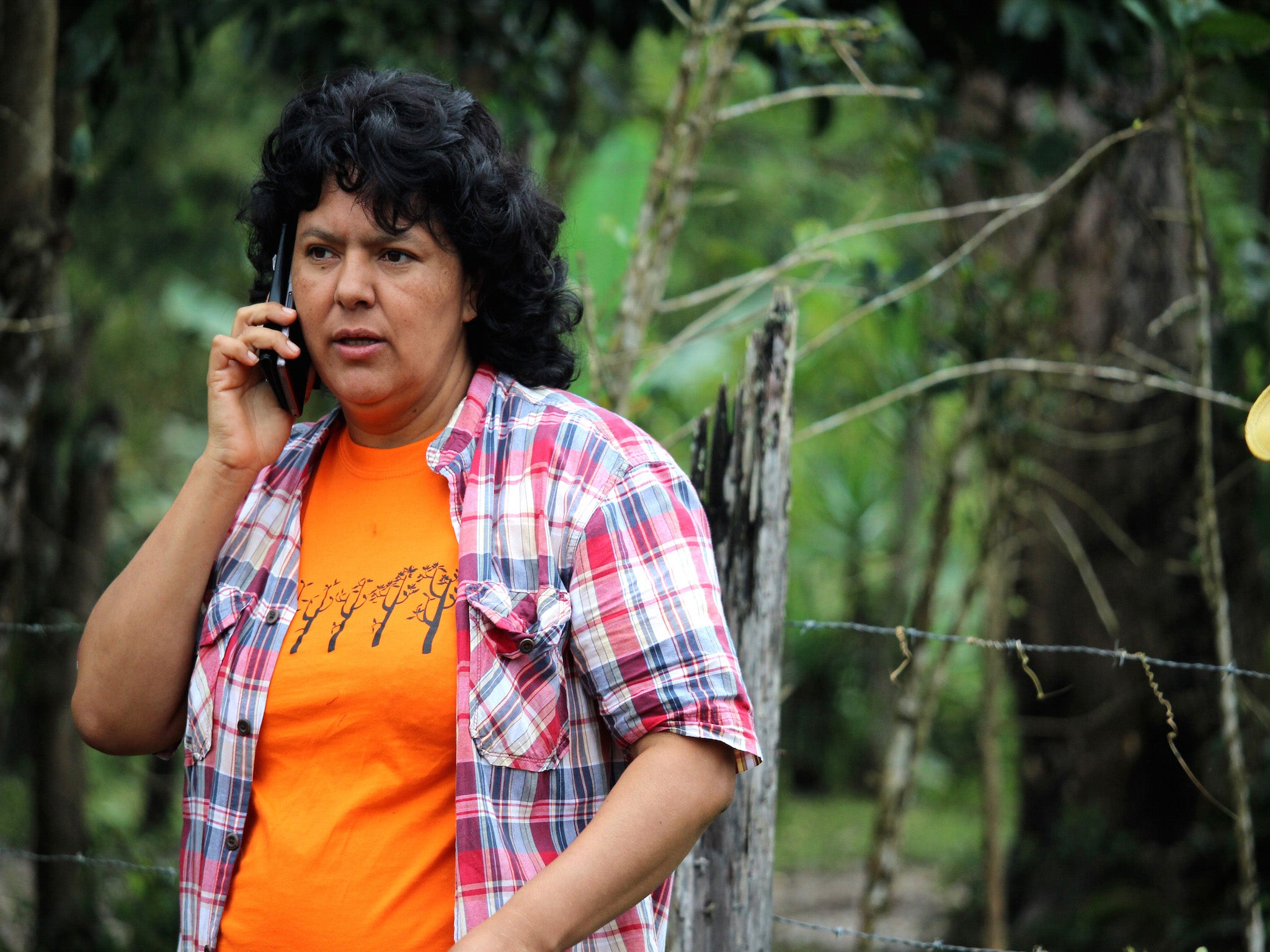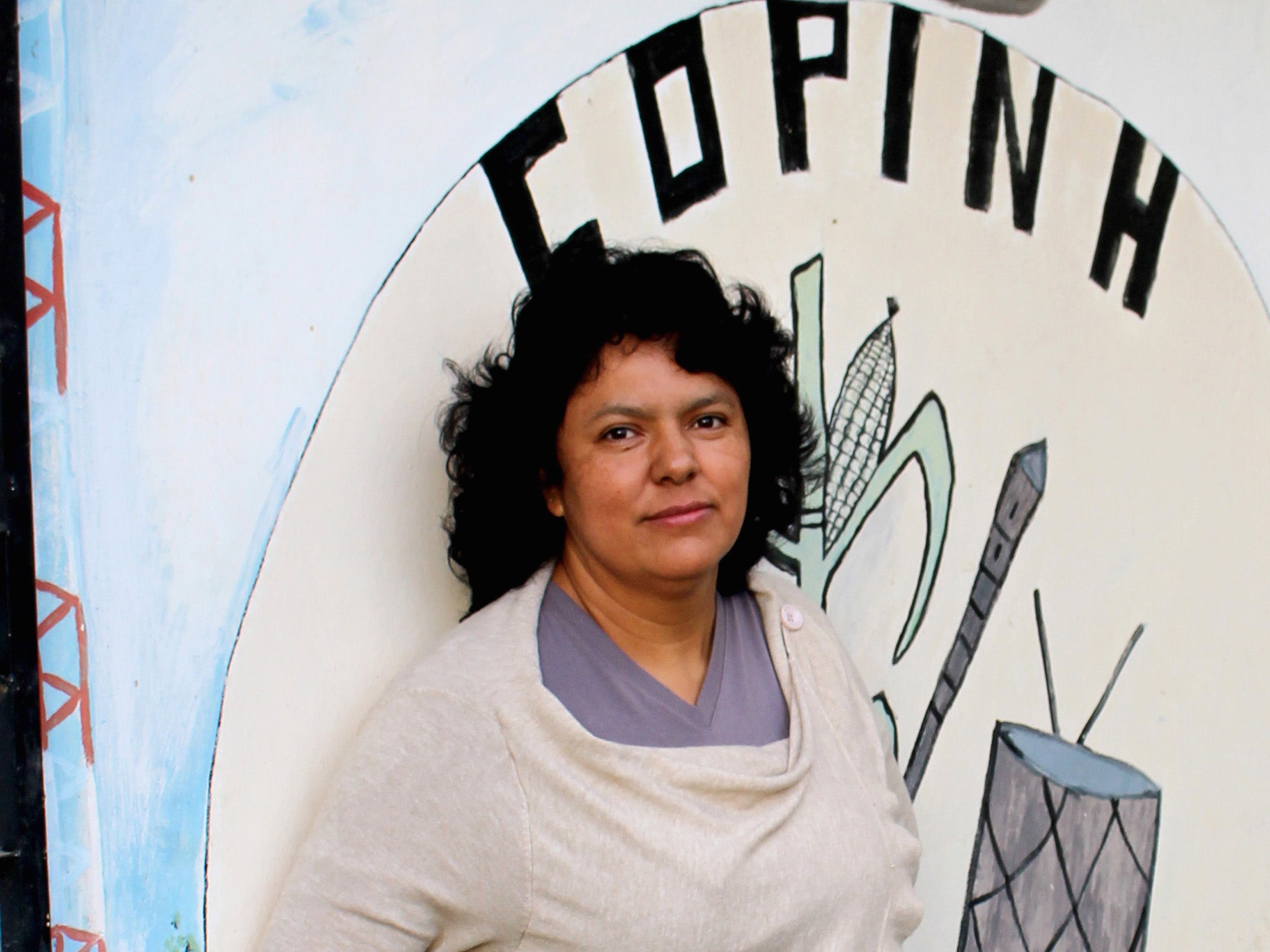Honduras has become the deadliest place for environmental activists, says report
Around the world, two activists are killed every week trying to defend the environment

Your support helps us to tell the story
From reproductive rights to climate change to Big Tech, The Independent is on the ground when the story is developing. Whether it's investigating the financials of Elon Musk's pro-Trump PAC or producing our latest documentary, 'The A Word', which shines a light on the American women fighting for reproductive rights, we know how important it is to parse out the facts from the messaging.
At such a critical moment in US history, we need reporters on the ground. Your donation allows us to keep sending journalists to speak to both sides of the story.
The Independent is trusted by Americans across the entire political spectrum. And unlike many other quality news outlets, we choose not to lock Americans out of our reporting and analysis with paywalls. We believe quality journalism should be available to everyone, paid for by those who can afford it.
Your support makes all the difference.What price to save the planet?
Last year, two environmental activists were killed every week as they struggled to save natural resources, a new report has revealed.
Up to 40 per cent of those who died were members of indigenous communities and around 75 per cent of the deaths occurred in Latin America, the report by Global Witness said. Over the past 15 years, relative to its size, Honduras has become the single most dangerous country to be an environmental activist. At least 111 activists were killed there between 2002-2014.
“There were 116 activists killed globally last year – a figure that represents a 20 per cent increase on 2013,” Chris Moye, a Global Witness spokesman told The Independent.

“And that is just the number of incidents we know about. In places such as China, Russia and the Middle East, that information not easy to get.”
Mr Moye said the dangers faced by activists in Honduras was indicative of the situation in many parts of Latin America where those who carry our or order the killings face little or no response from the state or police.
“The country suffers from one of the highest levels of corruption in the Americas and has one of the world’s highest homicide rates,” says the report. “Nearly two-thirds of the population live below the poverty line.”

The report says the police are implicated themselves in many of the killings and the judiciary is compromised by political interference.
“In environmental terms, Honduras is plagued by illegal logging and has one of the highest deforestation rates in the world,” the report adds.
An already perilous situation in Latin America had been worsened by the economic slump, which saw a number of governments in Latin America pass laws that diluted environmental protections, amid pressure to try and generate growth. The hydropower, mining and agri-business gave been identified as the main industries associated with the death of activists.
The report said that in 2014 the most killings took place in Brazil, 29, followed by followed by Colombia, 25, the Philippines, 15, and Honduras, 12.
The report, How Many More? Calls on governments and the international community to “monitor, investigate and punish these crimes”. Specifically, it calls for Honduras to address abuses in the upcoming review of its human rights record at the UN Human Rights Council.
The group said that the case of indigenous activist Berta Cáceres, a winner of the 2015 Goldman Environmental Prize, highlighted the situation in Honduras. Since 2013, three of her colleagues have been killed for resisting the Agua Zarca hydro-dam on the Gualcarque River, which threatens to cut off a vital water source.
Charges have been levelled against Ms Cáceres. The group said her supporters dismissed the charges as having been fabricated, however two of her children have left Honduras out of concerns for their safety.
“They follow me. They threaten to kill me, to kidnap me, they threaten my family. That is what we face,” the indigenous activist told the researchers.
“They have guards which have made death threats against us. They’ve been on the point of shooting us. I’ve received threats and had my vehicle followed.”
Join our commenting forum
Join thought-provoking conversations, follow other Independent readers and see their replies
Comments